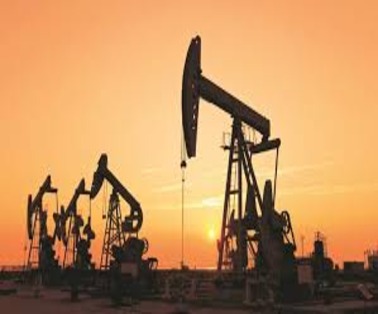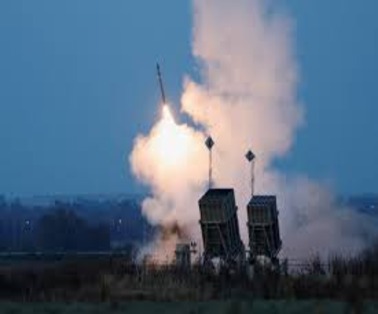The OPEC decided to cut the oil production due to low demand and to stabilize the oil markets.
Key Points On OPEC Production Cuts
- Oil prices skyrocketed after the Russia-Ukraine Conflict and have been fluctuating in recent months, with a drop towards USD 70 per barrel in March 2023 due to concerns of a global banking crisis that could hit demand.
- Till yet, Saudi Arabia, Iraq, UAE, Kuwait, Oman, Algeria, Kazakhstan, Russia and Gabon announced a voluntary oil output cut.
- However, not all OPEC+ members are joining the voluntary cuts, as some are already pumping well below agreed levels due to a lack of production capacity.
Impact
- The global benchmark Brent rose by more than 5%
- Inflationary pressures on the global economy
- Fluctuations in global assets
- The oil market might move into a deficit
Impact on India
- India imports nearly 85% of its crude requirement, the oil import bill will rise on account of the rise in prices due to decreased production.
- The rise in import bills will not only lead to inflation and a rise in the Current Account Deficit (CAD) and fiscal deficit but also weaken the rupee against the dollar and hurt stock market sentiment
Organization of the Petroleum Exporting Countries (OPEC)
- The Organization of the Petroleum Exporting Countries (OPEC) is a permanent, intergovernmental organization, created at the Baghdad Conference in 1960, by Iran, Iraq, Kuwait, Saudi Arabia, and Venezuela.
- It is headquartered in Vienna, Austria.
- As per the OPEC statute, “any country with a substantial net export of crude petroleum, which has fundamentally similar interests to those of Member Countries, may become a Full Member of the Organization, if accepted by a majority of three- fourths of Full Members, including the concurring votes of all Founder Members.”
Objectives Of OPEC

Members Of OPEC
- The Organization of the Petroleum Exporting Countries (OPEC) was founded in Baghdad, Iraq, with the signing of an agreement in September 1960 by five countries namely Islamic Republic of Iran, Iraq, Kuwait, Saudi Arabia and Venezuela.
- They were to become the Founder Members of the Organization.
- These countries were later joined by Qatar (1961), Indonesia (1962), Libya (1962), the United Arab Emirates (1967), Algeria (1969), Nigeria (1971), Ecuador (1973), Gabon (1975), Angola (2007), Equatorial Guinea (2017) and Congo (2018).
- Ecuador suspended its membership in December 1992, rejoined OPEC in October 2007, but decided to withdraw its membership of OPEC effective 1 January 2020.
- Indonesia suspended its membership in January 2009, reactivated it again in January 2016, but decided to suspend its membership once more at the 171st Meeting of the OPEC Conference on 30 November 2016.
- Gabon terminated its membership in January 1995. However, it rejoined the Organization in July 2016.
- Qatar terminated its membership on 1 January 2019.
- This means that, currently, the Organization has a total of 13 Member Countries.
Secretariat Of OPEC
- The OPEC Secretariat is the executive organ of the Organization of the Petroleum Exporting Countries (OPEC).
- Located in Vienna, it also functions as the Headquarters of the Organization, in accordance with the provisions of the OPEC Statute.
- It is responsible for the implementation of all resolutions passed by the Conference and carries out all decisions made by the Board of Governors.
- It also conducts research, the findings of which constitute key inputs in decision- making.
- The Secretariat consists of the Secretary General, who is the Organization’s Chief Executive Officer, as well as such staff as may be required for the Organization’s operations.
What Is The OPEC+?
- In 2016, OPEC allied with other top non-OPEC oil-exporting nations to form an even more powerful entity named OPEC+ or OPEC Plus.
- The Declaration of Cooperation (DoC) constitutes an unprecedented milestone in the history of OPEC as under it, for the first time ever, OPEC countries coordinated with non-OPEC oil producing countries
- The 10 of the world’s major non-OPEC oil-exporting nations are Azerbaijan, Bahrain, Brunei, Kazakhstan, Malaysia, Mexico, Oman, Russia, South Sudan and Sudan.
- It came into existence to counteract other nations’ capacity to produce oil, which could limit OPEC’s ability to control supply and price.
Why OPEC Plus Came Into Existence?
- OPEC Plus was led by Russia and Saudi Arabia
- For Saudi Arabia, turning what had been an ad hoc coalition into a formal group provides a hedge (protection) against future oil-market turbulence.
- For Russia, the formalization of the group helps expand Putin’s influence in the Middle East
To Download Monthly Current Affairs PDF Click here
Get Inspiration from CLAT 2025 Topper
Click here to get a free demo
Everything About CLAT 2025
Frequently Asked Questions
The Organization of the Petroleum Exporting Countries (OPEC) was founded in?
The Organization of the Petroleum Exporting Countries (OPEC) was founded in 1960
Where are OPEC’s headquarters?
OPEC’s headquarters are located at Vienna
What is the full form of OPEC?
The full form of OPEC is Organization of the Petroleum Exporting Countries



